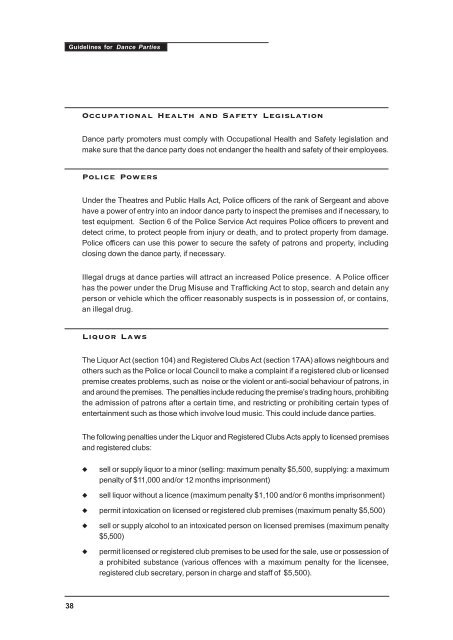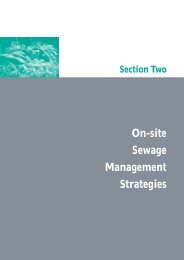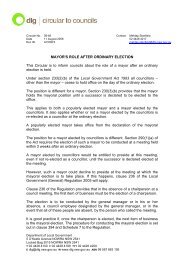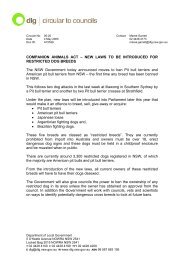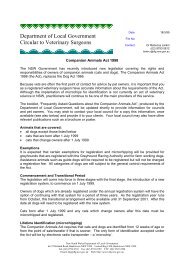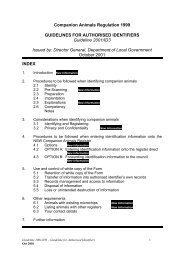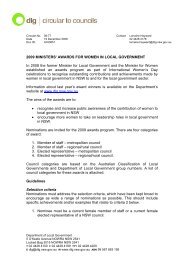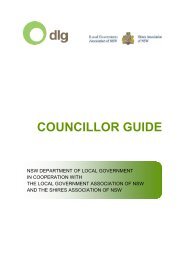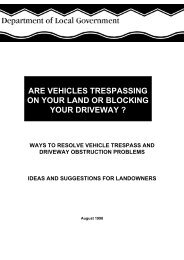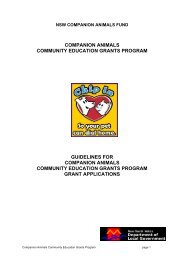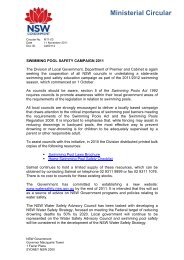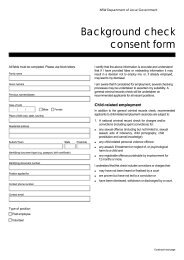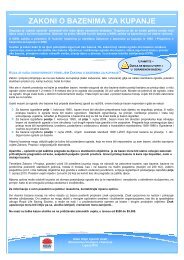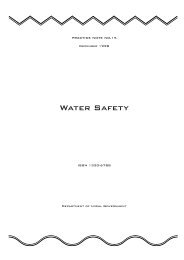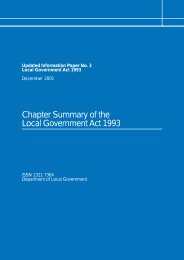Guidelines for Dance Parties - Division of Local Government - NSW ...
Guidelines for Dance Parties - Division of Local Government - NSW ...
Guidelines for Dance Parties - Division of Local Government - NSW ...
- No tags were found...
You also want an ePaper? Increase the reach of your titles
YUMPU automatically turns print PDFs into web optimized ePapers that Google loves.
<strong>Guidelines</strong> <strong>for</strong> <strong>Dance</strong> <strong>Parties</strong>Occupational Health and Safety Legislation<strong>Dance</strong> party promoters must comply with Occupational Health and Safety legislation andmake sure that the dance party does not endanger the health and safety <strong>of</strong> their employees.Police PowersUnder the Theatres and Public Halls Act, Police <strong>of</strong>ficers <strong>of</strong> the rank <strong>of</strong> Sergeant and abovehave a power <strong>of</strong> entry into an indoor dance party to inspect the premises and if necessary, totest equipment. Section 6 <strong>of</strong> the Police Service Act requires Police <strong>of</strong>ficers to prevent anddetect crime, to protect people from injury or death, and to protect property from damage.Police <strong>of</strong>ficers can use this power to secure the safety <strong>of</strong> patrons and property, includingclosing down the dance party, if necessary.Illegal drugs at dance parties will attract an increased Police presence. A Police <strong>of</strong>ficerhas the power under the Drug Misuse and Trafficking Act to stop, search and detain anyperson or vehicle which the <strong>of</strong>ficer reasonably suspects is in possession <strong>of</strong>, or contains,an illegal drug.Liquor LawsThe Liquor Act (section 104) and Registered Clubs Act (section 17AA) allows neighbours andothers such as the Police or local Council to make a complaint if a registered club or licensedpremise creates problems, such as noise or the violent or anti-social behaviour <strong>of</strong> patrons, inand around the premises. The penalties include reducing the premise’s trading hours, prohibitingthe admission <strong>of</strong> patrons after a certain time, and restricting or prohibiting certain types <strong>of</strong>entertainment such as those which involve loud music. This could include dance parties.The following penalties under the Liquor and Registered Clubs Acts apply to licensed premisesand registered clubs:◆◆sell or supply liquor to a minor (selling: maximum penalty $5,500, supplying: a maximumpenalty <strong>of</strong> $11,000 and/or 12 months imprisonment)sell liquor without a licence (maximum penalty $1,100 and/or 6 months imprisonment)◆ permit intoxication on licensed or registered club premises (maximum penalty $5,500)◆◆sell or supply alcohol to an intoxicated person on licensed premises (maximum penalty$5,500)permit licensed or registered club premises to be used <strong>for</strong> the sale, use or possession <strong>of</strong>a prohibited substance (various <strong>of</strong>fences with a maximum penalty <strong>for</strong> the licensee,registered club secretary, person in charge and staff <strong>of</strong> $5,500).38


